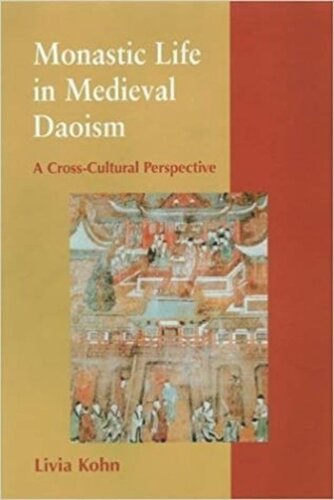

Most ebook files are in PDF format, so you can easily read them using various software such as Foxit Reader or directly on the Google Chrome browser.
Some ebook files are released by publishers in other formats such as .awz, .mobi, .epub, .fb2, etc. You may need to install specific software to read these formats on mobile/PC, such as Calibre.
Please read the tutorial at this link: https://ebookbell.com/faq
We offer FREE conversion to the popular formats you request; however, this may take some time. Therefore, right after payment, please email us, and we will try to provide the service as quickly as possible.
For some exceptional file formats or broken links (if any), please refrain from opening any disputes. Instead, email us first, and we will try to assist within a maximum of 6 hours.
EbookBell Team

4.4
52 reviewsIn Monastic Life in Medieval Daoism, a senior scholar of Daoist studies presents for the first time a detailed description and analysis of the organization and practices of medieval Daoist monasteries. Following an introduction to the wider, comparative issues involved in the study of monasticism, Livia Kohn outlines the origin, history, conceptual understanding, and social position of the monasteries, which came into their own early in the Tang dynasty. She examines texts from this period along with the architectural layout of Daoist monasteries, the daily discipline and interpersonal etiquette of monks and nuns, their implements and vestments, as well as the liturgical dimension (regular services, annual festivals, and special rites such as funerals) of monastic life. Throughout, Professor Kohn maintains a high comparative level, linking the Daoist situation and practices not only with Chinese popular, Confucian, Buddhist, and lay Daoist traditions, but also with relevant examples from Indian Buddhism and medieval Christianity.
Monastic Life in Medieval Daoism breaks new ground in Daoist studies, the understanding of Chinese religion and medieval society, and the theoretical understanding and interpretation of the comparative phenomenon of monasticism. It will be required reading for scholars of Daoist studies and Chinese religion and medieval history and illuminating to experts in comparative religion and religious studies in general as well as to the wider public interested in questions of monastic life.